Introduction
Juste un Mouvement is a free take on La Chinoise, a Jean-Luc Godard movie shot in 1967 in Paris. Reallocating its roles and characters fifty years later in Dakar, and updating its plot, this new version offers a meditation on the relationship between politics, justice and memory. Although not anymore alive, Omar Blondin Diop, the only actual Maoist student in the original movie, now becomes the key character.
Shot exclusively with non-professional actors and including Omar Blondin Diop’s brothers and friends, everyone in this film performs themselves: a filmmaker, a rapper, a poet, a Chinese worker, a Shaolin master, a Senegalese intellectual, the Minister of Culture of Senegal and the Vice President of the People’s Republic of China.
Synopsis
"Omar is dead!", a voice cried out in Dakar, 11 May 1973. The eldest of the Blondin Diop family, a young militant philosopher, and the articulate Maoist in Jean-Luc Godard's La Chinoise had allegedly committed suicide in his Gorée Island prison cell. His family and friends did not believe a word of it, demanding that light be shed on this political crime. A phantom haunts the Senegalese capital, itself in a state of unrest.
Trailer
Stills
WITH
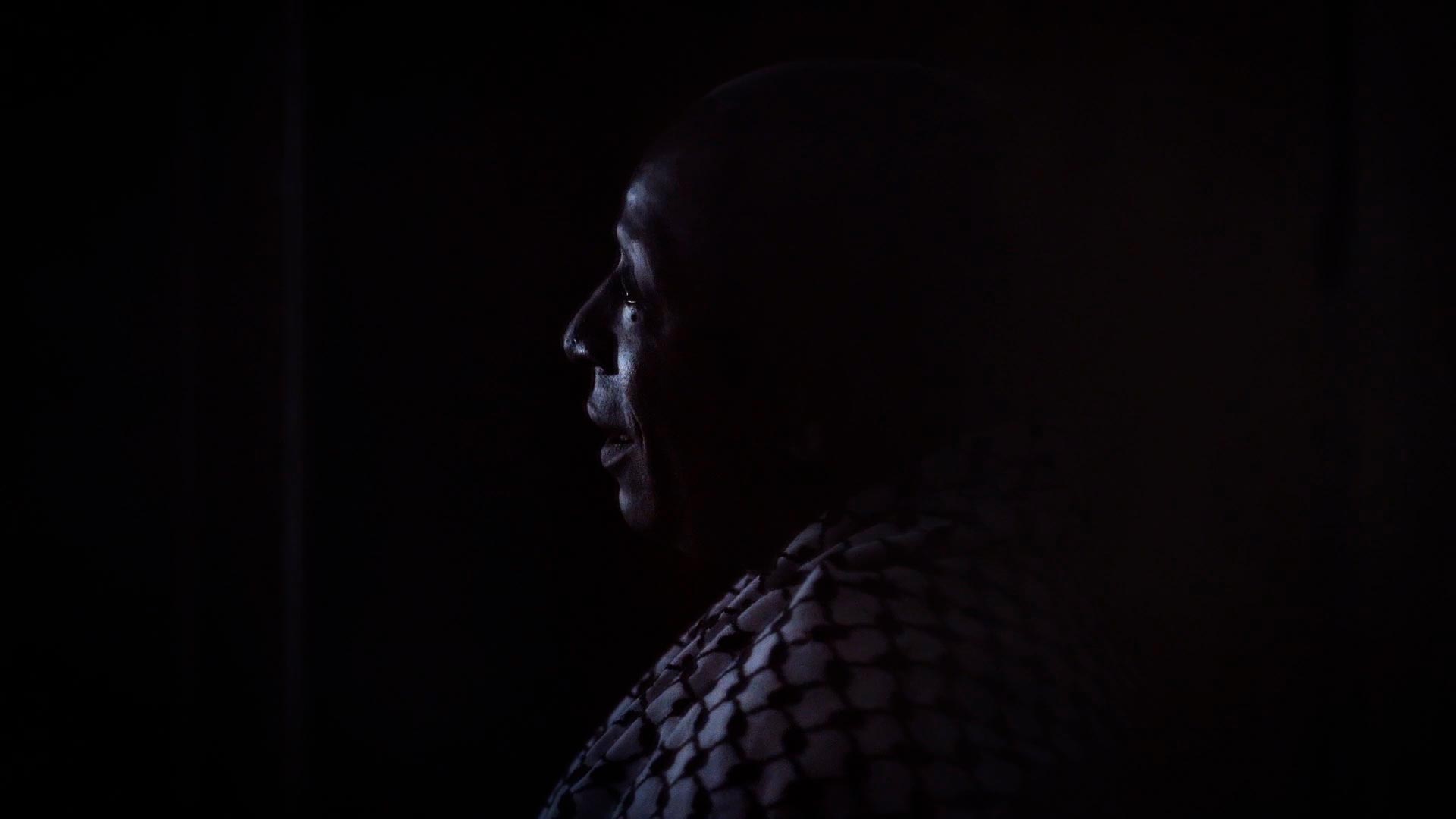 Dialo blondin diop
Dialo blondin diop
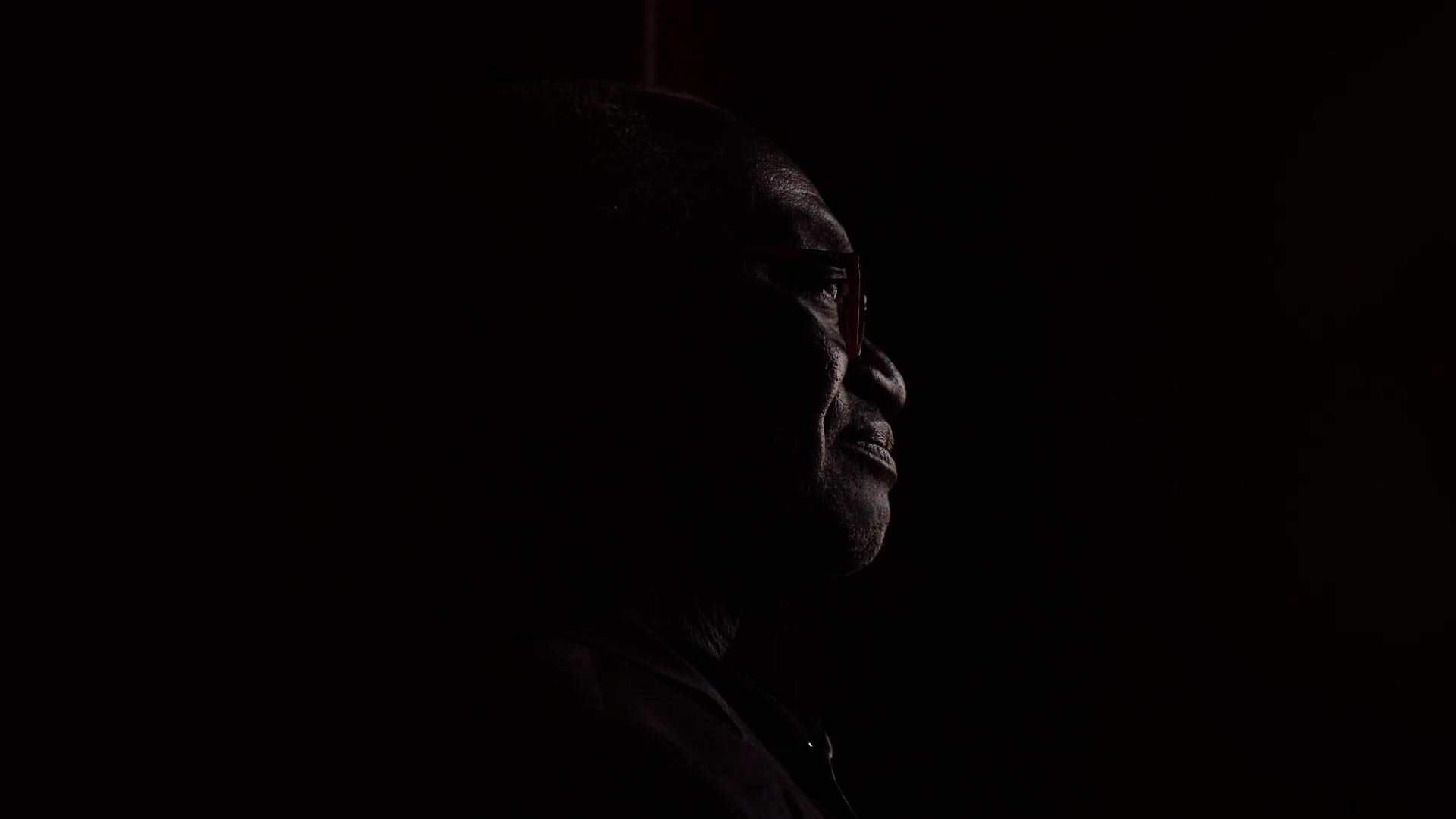 Ousman blondin diop
Ousman blondin diop
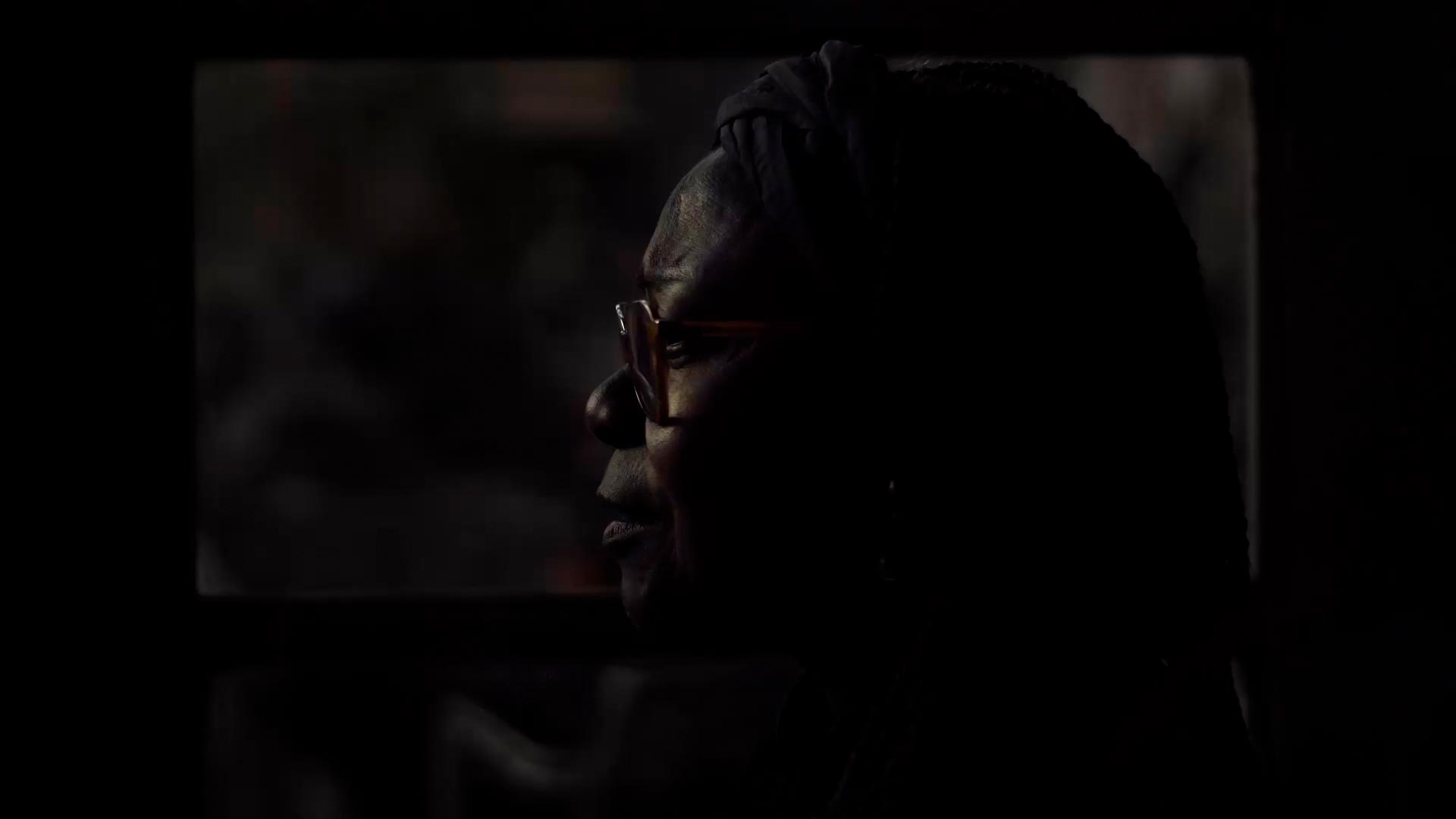 Marie thérèse diedhiou
Marie thérèse diedhiou

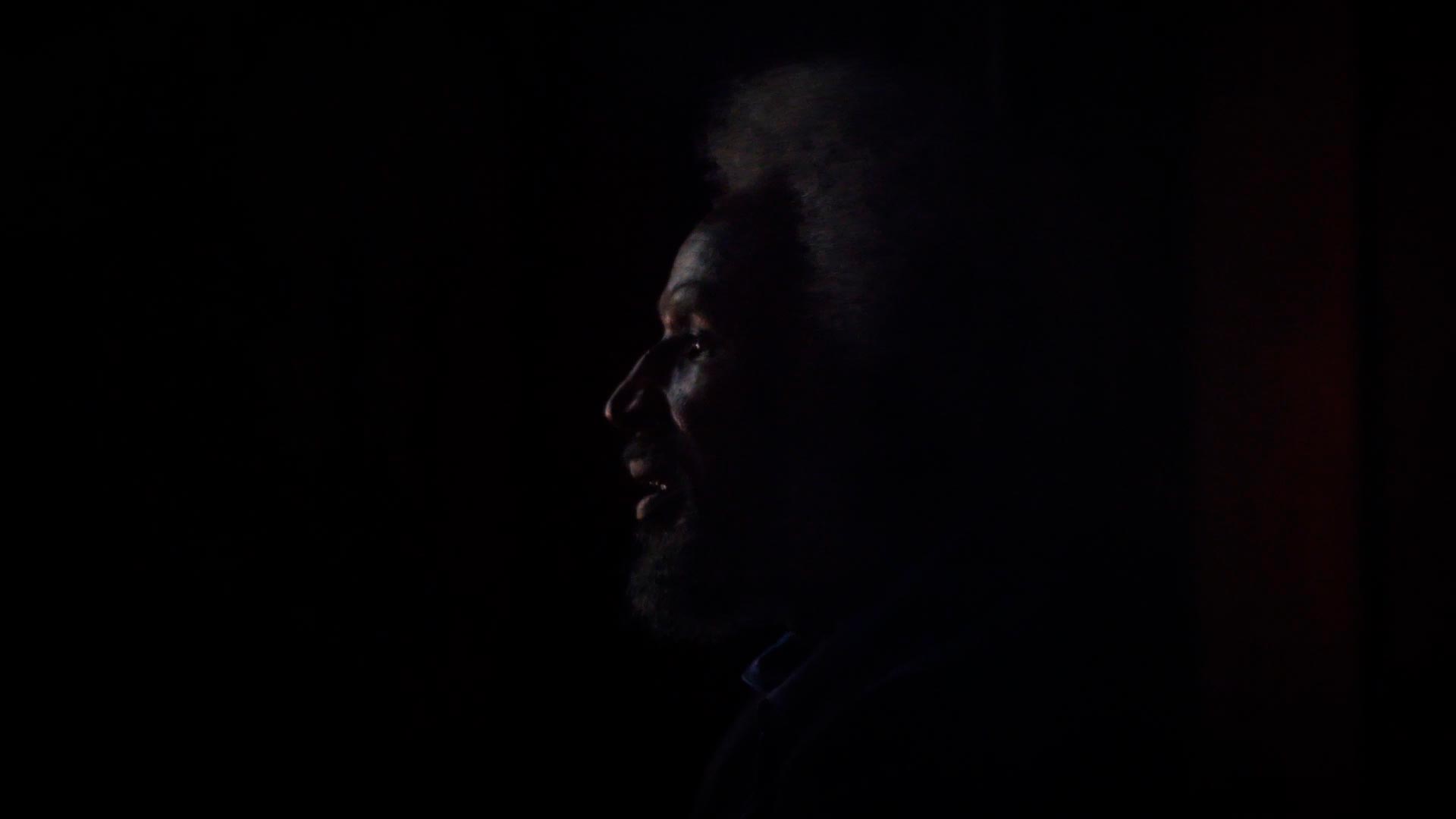 alioune paloma sall
alioune paloma sall
 BOUBA diallo
BOUBA diallo
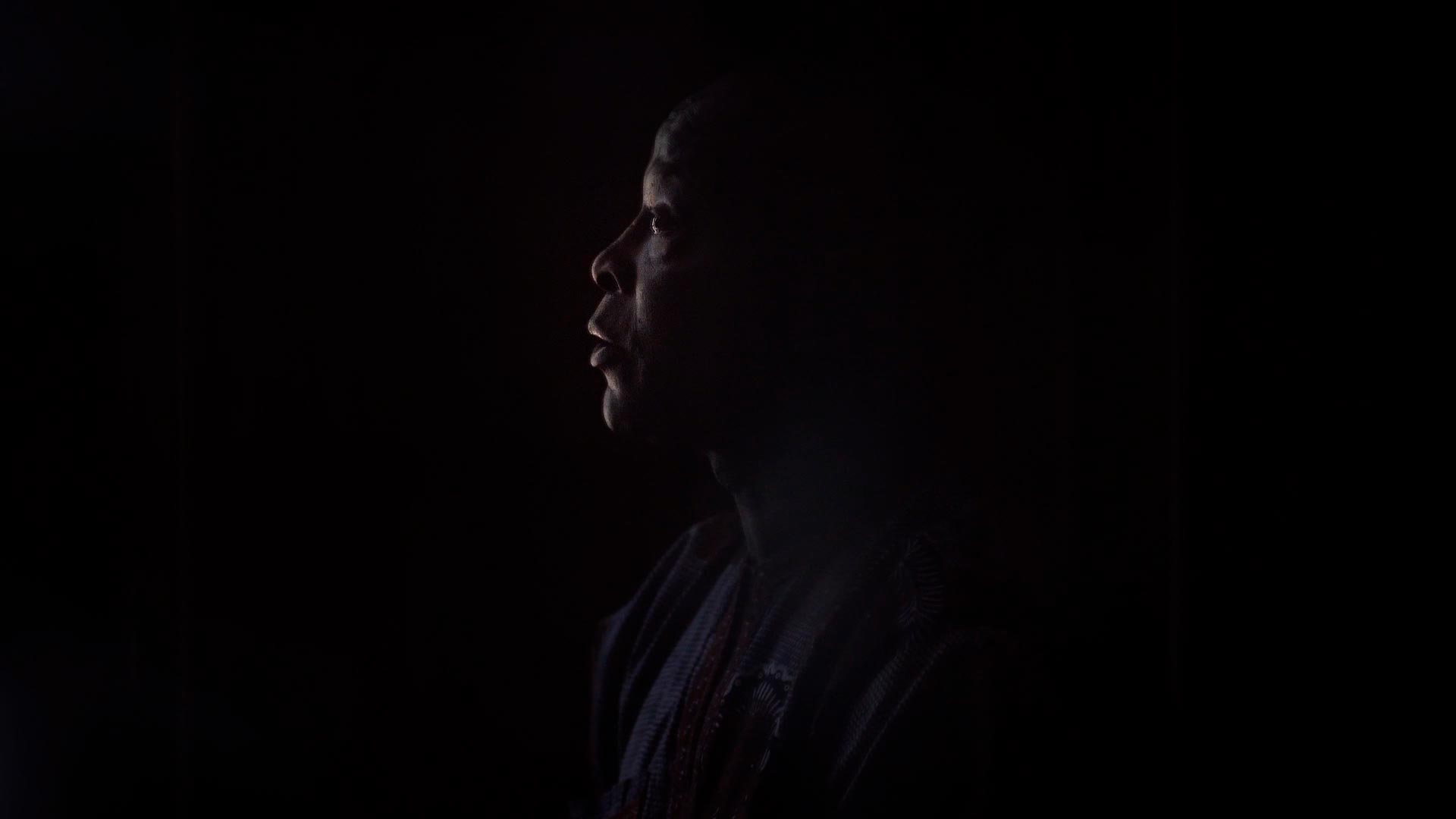 cheik Hamala blondin diop
cheik Hamala blondin diop
 Alymana bathily
Alymana bathily
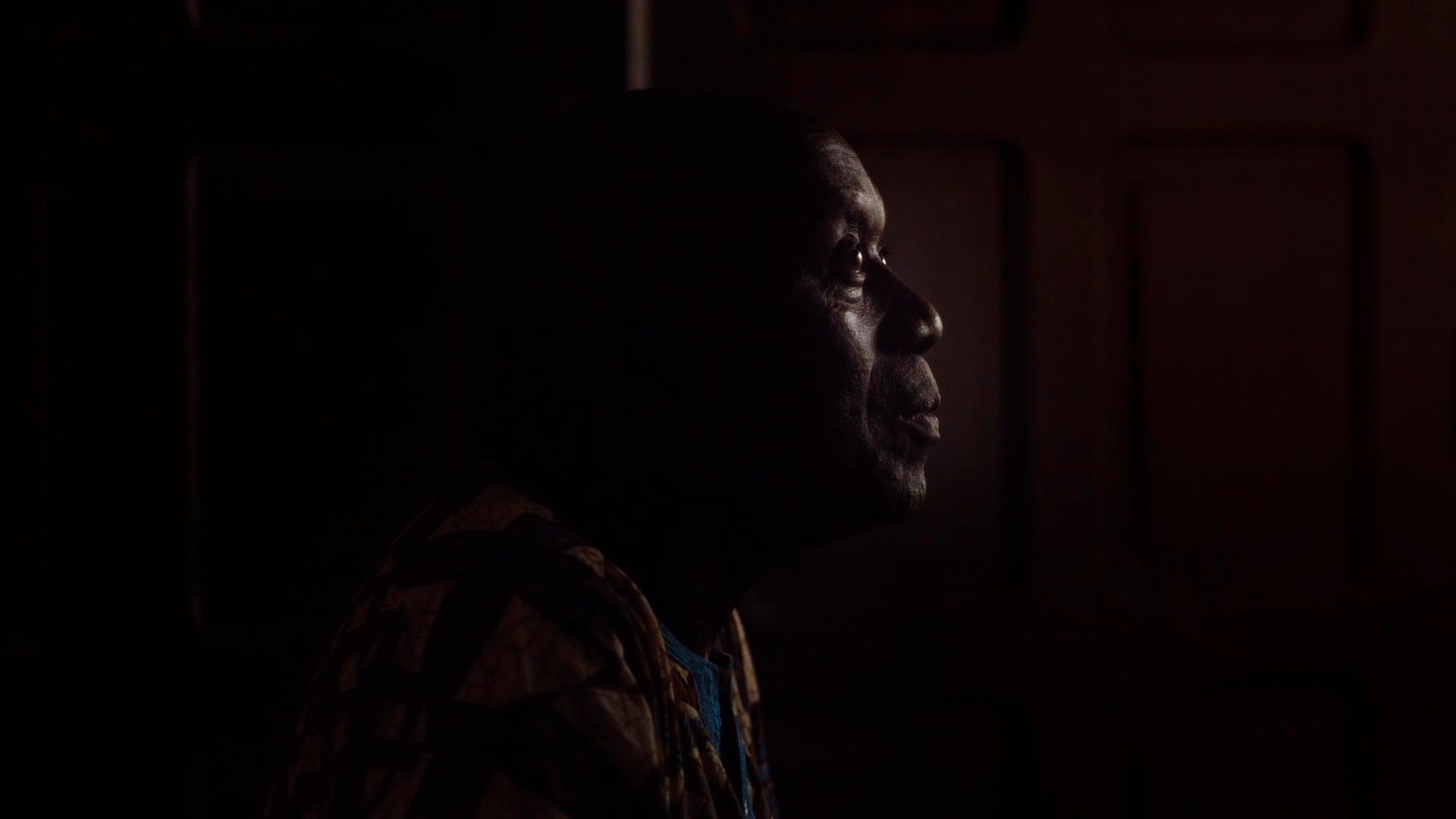 Landing savané
Landing savané
 Marie-Angélique sagna
Marie-Angélique sagna
AND
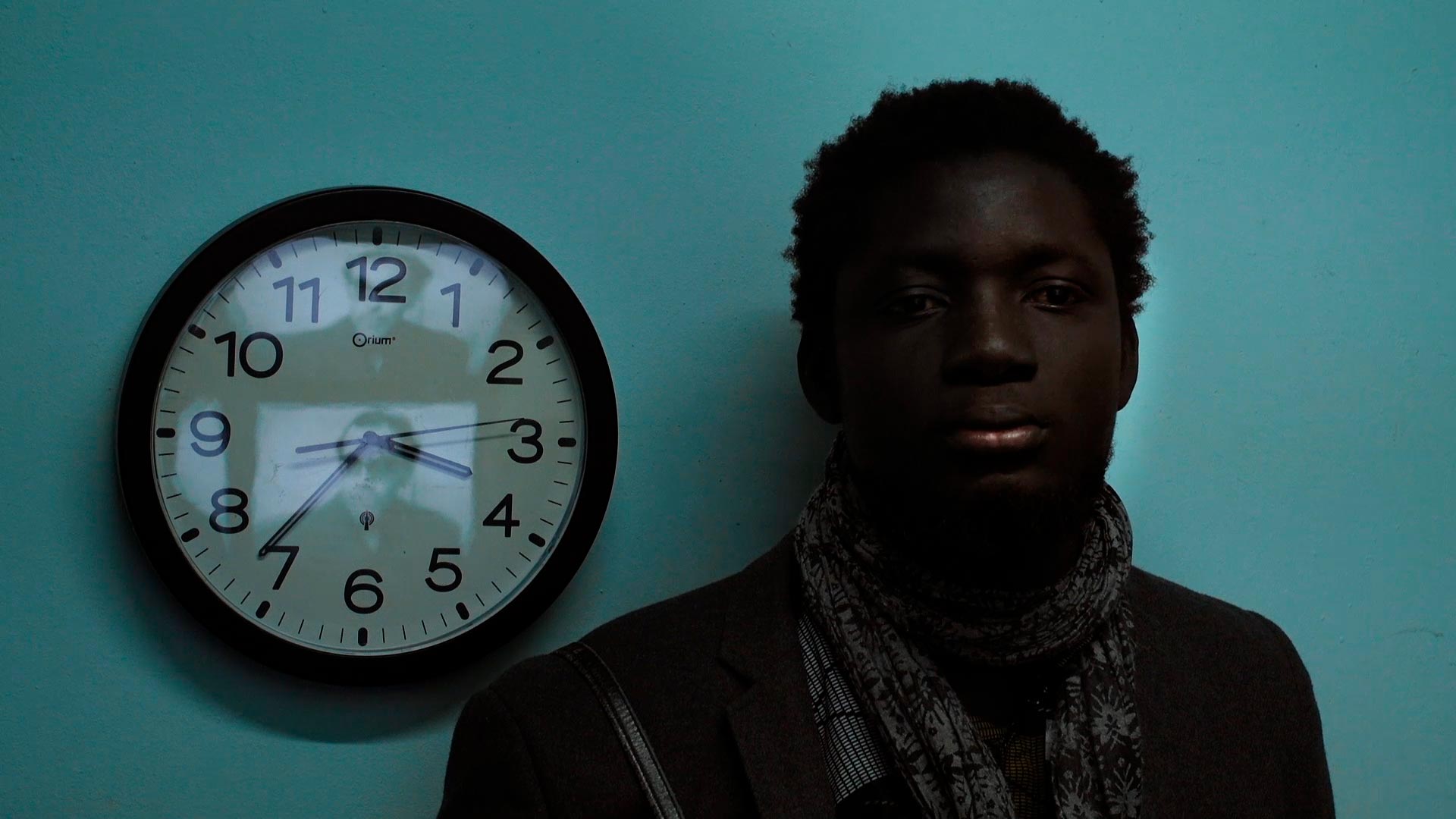 MAMADOU KHOUMA GUEYE
MAMADOU KHOUMA GUEYE
 FELWINE SARR
FELWINE SARR
 fou malade
fou malade
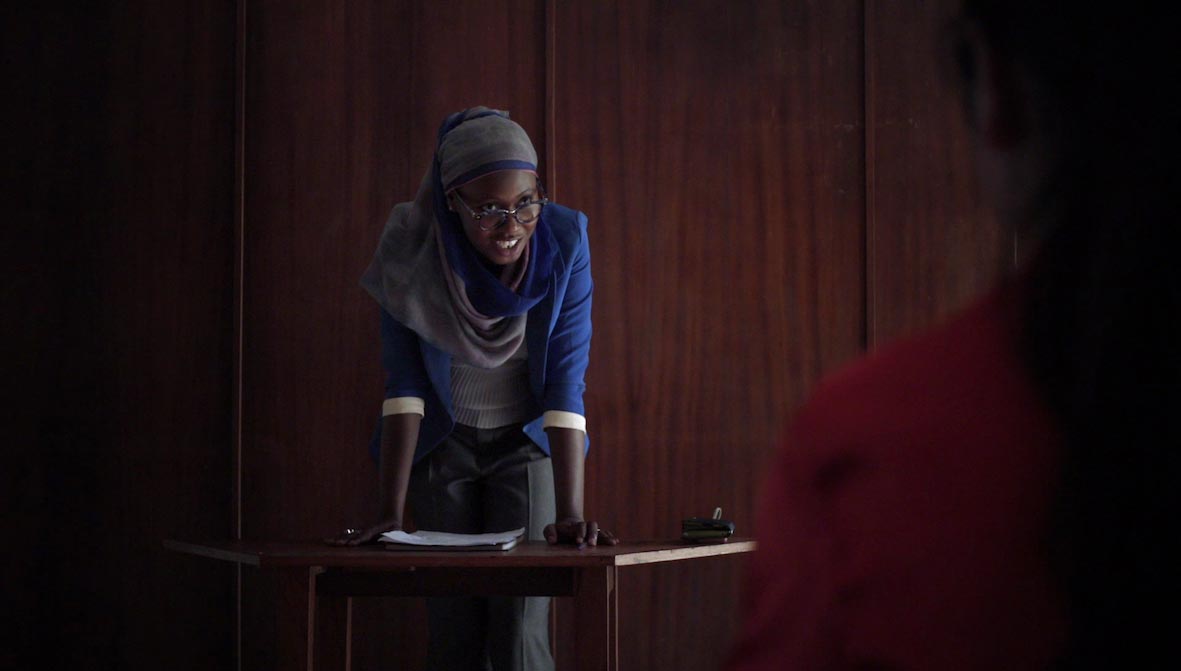 MAME AWA LY FALL
MAME AWA LY FALL
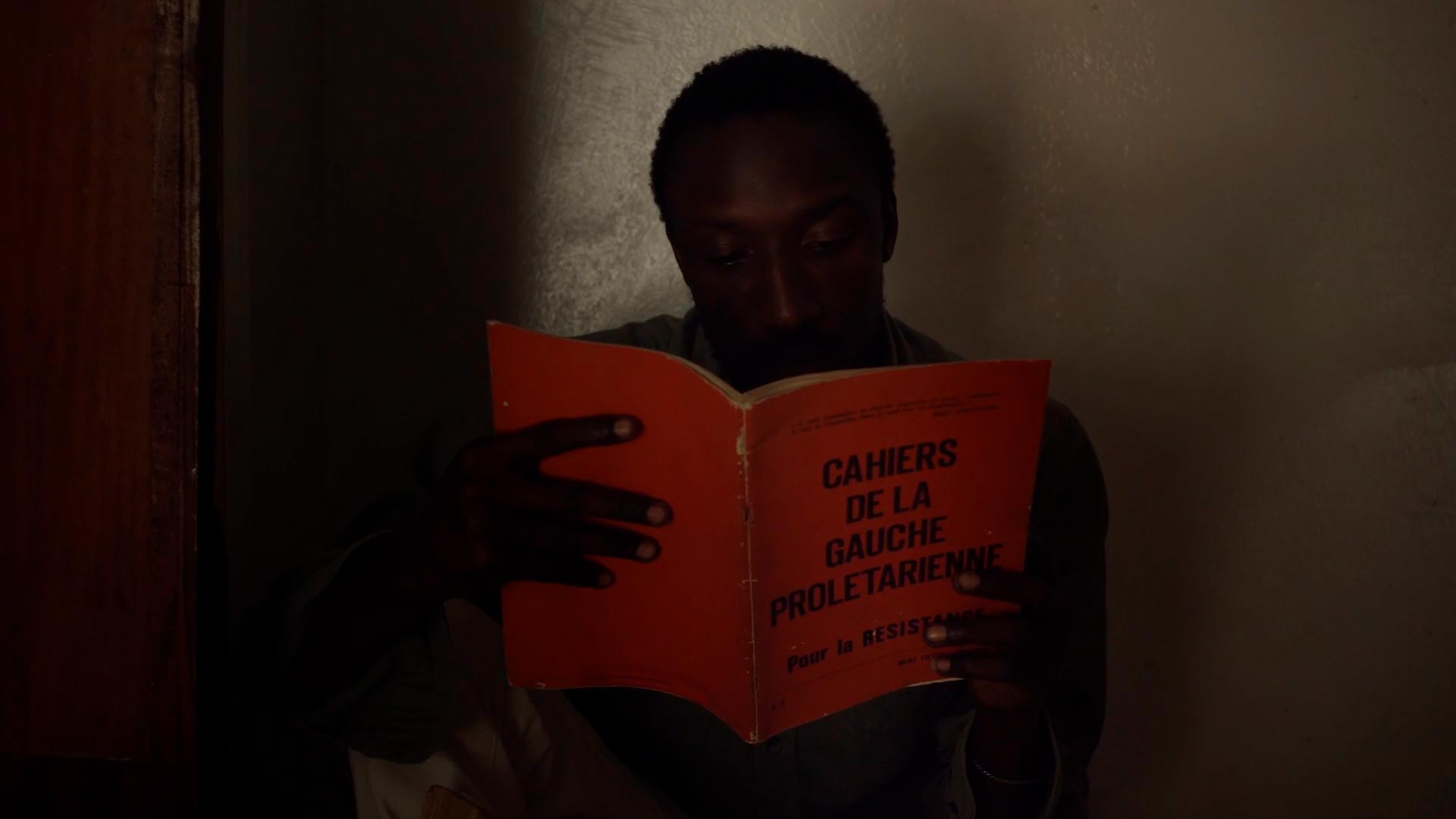 MADIAW NJAAY
MADIAW NJAAY
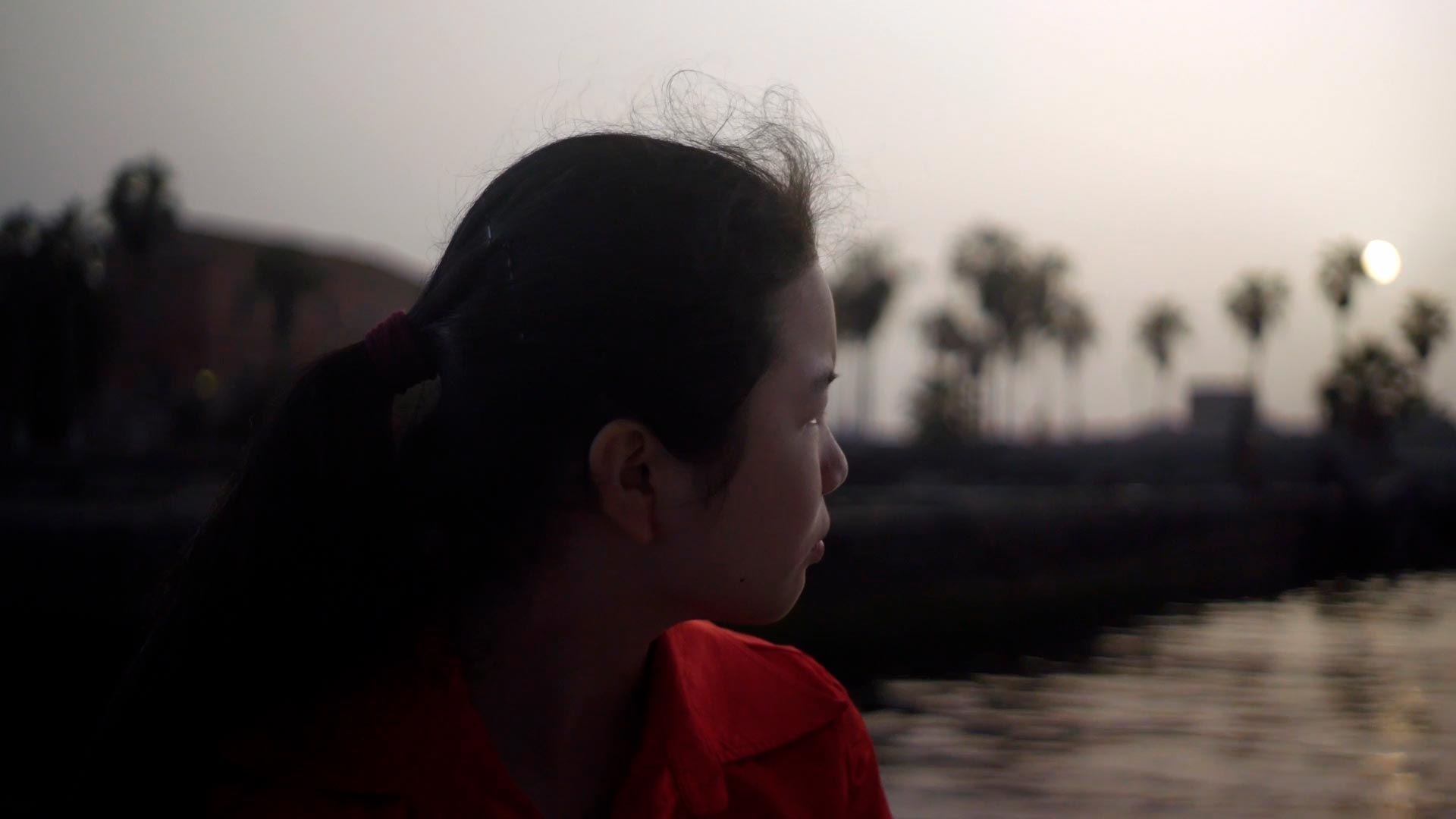 FI LU
FI LU
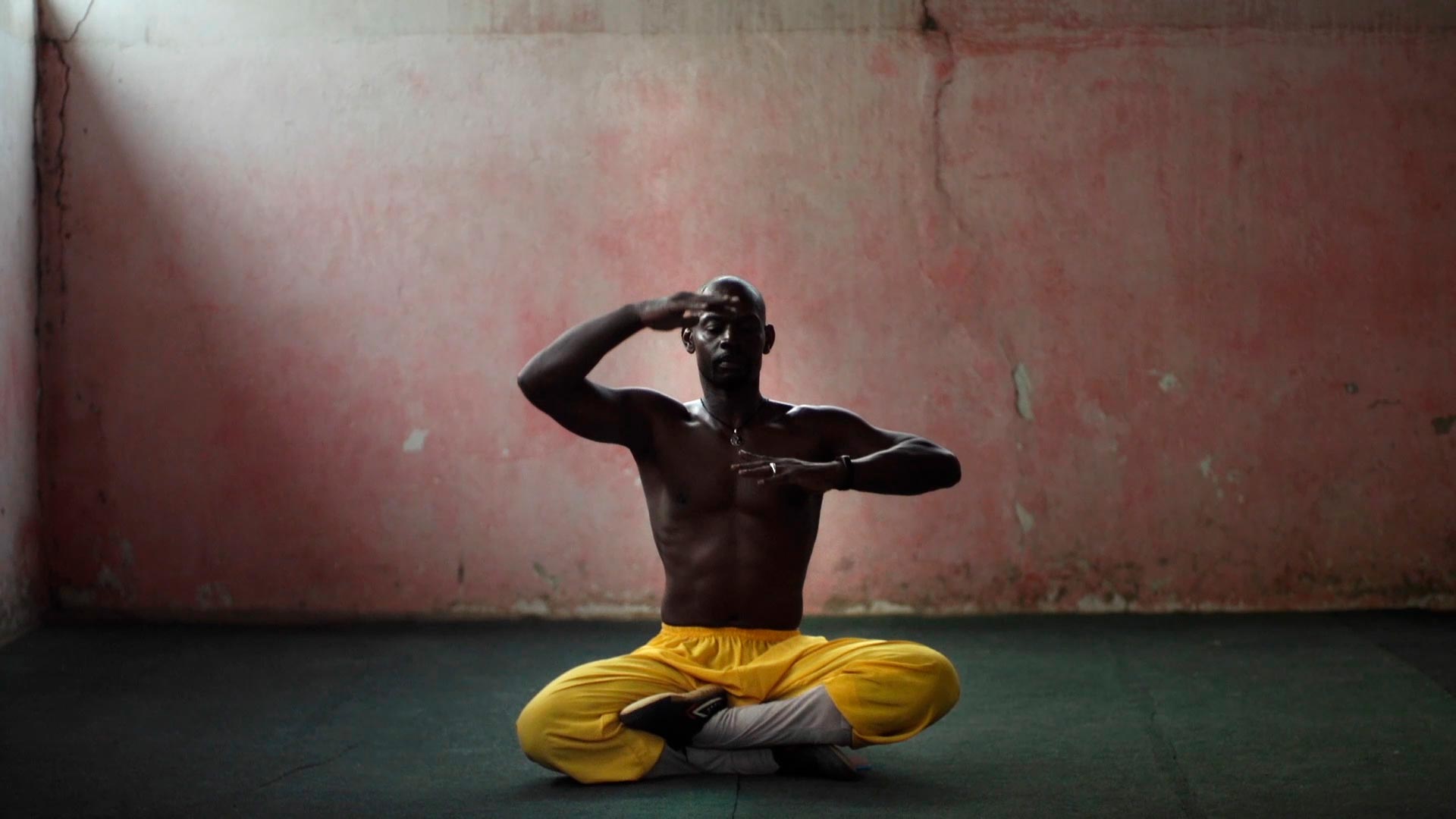 DOUDOU FALL
DOUDOU FALL
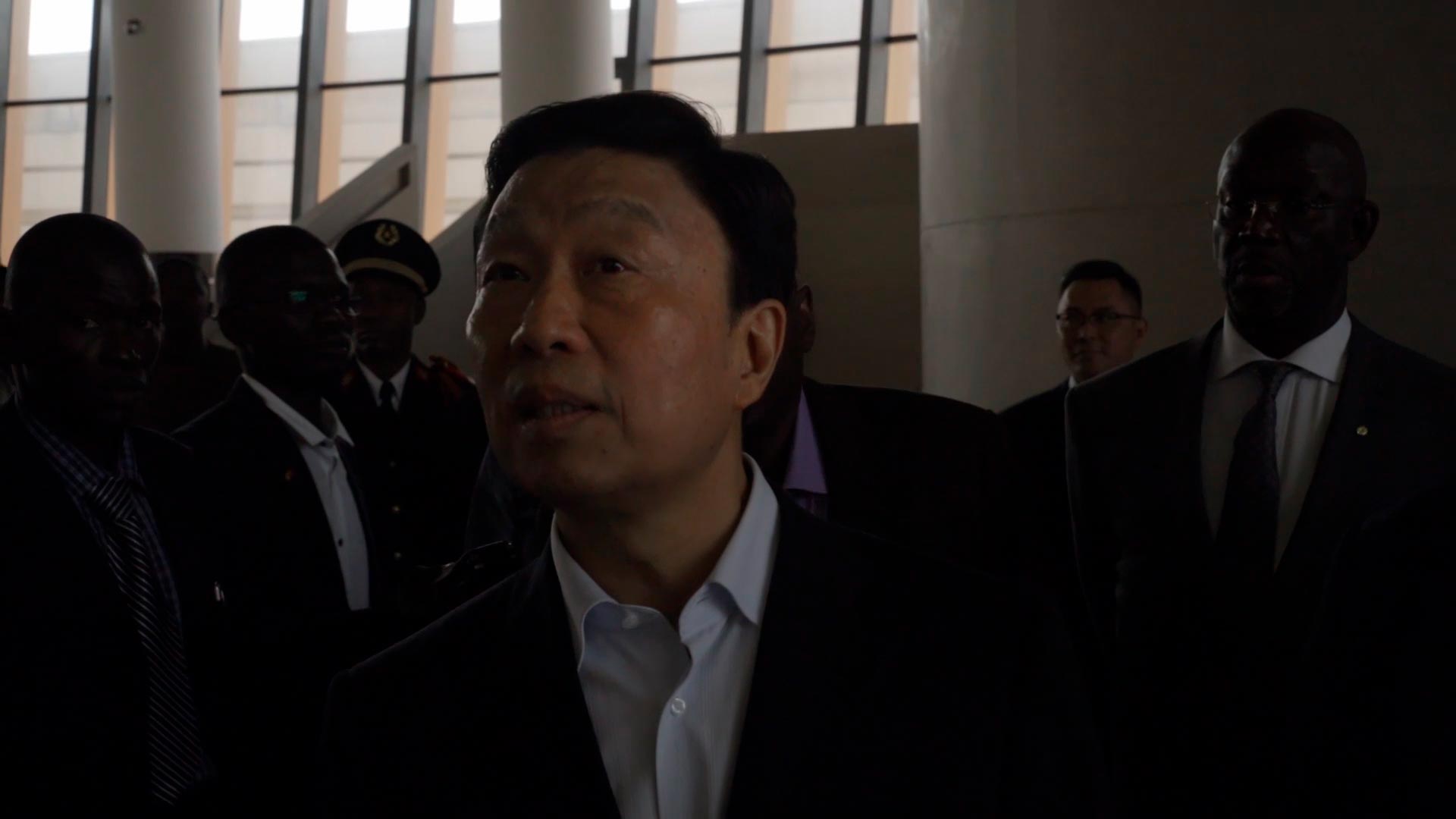 LI YUANCHAO
LI YUANCHAO
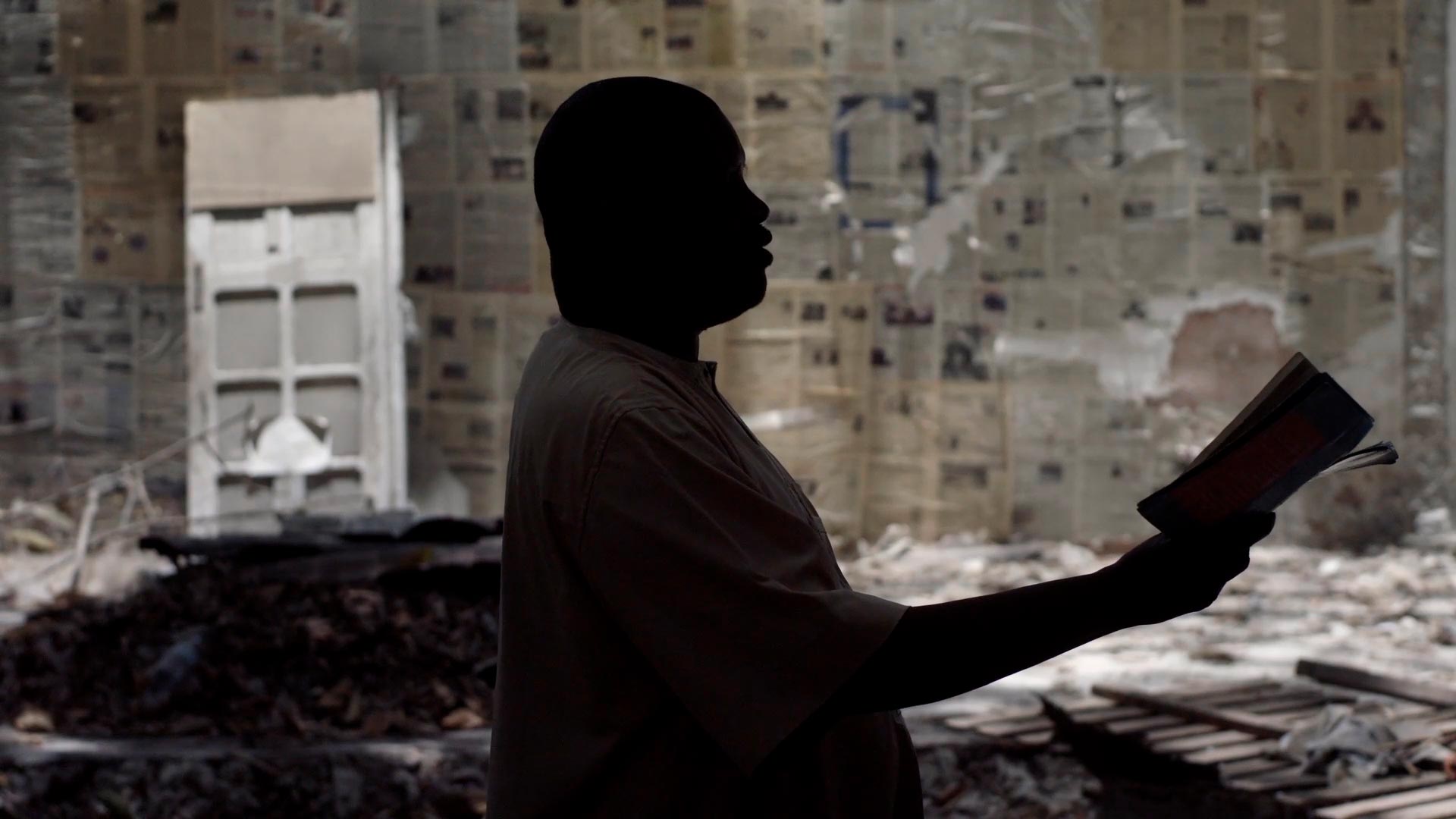 THIERNO SEYDOU SALL
THIERNO SEYDOU SALL
Bio's
omar blondin diop
(1946–1973) was a Senegalese militant leftist intellectual born in Niamey (Niger) and who died in prison on Gorée island (Senegal). As a student in philosophy in Paris during the 1960s, he graduated from the renowned university École Normale Supérieure de Saint-Cloud. Studying at the University of Nanterre, he met Jean-Luc Godard and “played himself” as a Maoist militant in La Chinoise (1967). A member of the Fédération des étudiants d’Afrique noire en France (FEANF), he also took part in the March 22 Movement. This French student movement occupied administration buildings at Nanterre University and was at the origin of the student uprising of May ’68. Diop was expelled from France to Senegal where he briefly was a researcher at the IFAN (Institut Fondamental d’Afrique noire), and founded the Mouvement des Jeunes Marxistes-Léninistes (MJML), a clandestine party. On presidential request, he was re-admitted to study in Paris on the condition that he would stop his political activities. Shortly after returning to Paris in 1970, two of his brothers were arrested and sentenced in Dakar. Omar left France to prepare his brothers’ escape, but was preventively arrested in Bamako.
Vincent Meessen
was born in Baltimore, USA, in 1971, and lives and works in Brussels, Belgium. His artistic and filmic work are woven from a constellation of figures, gestures, and signs that maintain a polemical and sensible relation to the writing of history and the westernization of imaginaries. He decenters and multiplies gazes and perspectives to explore the variety of ways in which colonial modernity has impacted the fabric of contemporary subjectivities. Both in his work as an artist and filmmaker, he likes to use procedures of collaboration that undermine the authority of the author and emphasize the intelligence of collectives.
His films have been screened at numerous museums and art centers including Centre Pompidou (Paris), HKW (Berlin), MUMOK (Vienna), Museo Reina Sofia (Madrid), in film festivals including IFFR (Rotterdam), IDFA (Amsterdam), Oberhausen International Short Film Festival, Art of the Real (New York, Seoul), FID (Marseille) and FESPACO (Ouagadougou).
Main solo exhibitions have taken place in Montreal, Toronto, Paris, Basel, Brussels, Bordeaux, Mexico, Amsterdam.
Vincent Meessen has represented Belgium at the 56th Venice Biennale with Personne et les autres, a group show with ten invited artists from four continents. Recent other biennale participations include … and other such stories, Chicago Architecture Biennial, (2019); Généalogies futures, récits depuis l'Équateur, Biennale de Lubumbashi (2019); Proregress, 12th Shanghai Biennale (2018-2019); Printemps de septembre, Toulouse (2016, 2018) and Gestures and Archives of the Present, Genealogies of the Future, Taipei Biennale (2016).
Vincent Meessen is a member of Jubilee-platform for research and artistic production.
FILM Credits
Juste un Mouvement, 2021
108 minutes, HD, sound & colour, Dolby 5.1
Directed by VINCENT MEESSEN
with
DIALO BLONDIN DIOP
OUSMAN BLONDIN DIOP
MARIE THÉRÈSE DIEDHIOU
ALIOUNE PALOMA SALL
BOUBA DIALLO
CHEIKH HAMALA BLONDIN DIOP
ALYMANA BATHILY
LANDING SAVANÉ
MARIE-ANGÉLIQUE SAGNA
and
MAMADOU KHOUMA GUEYE
FELWINE SARR
FOU MALADE
MAME AWA LY FALL
MADIAW NJAAY
FI LU
PA & MA LU
DOUDOU FALL
LI YUANCHAO
THIERNO SEYDOU SALL
Assistant director MAMADOU KHOUMA GUEYE
Cinematography VINCENT PINCKAERS
Sound and sound design LASZLO UMBREIT
Sound mix RÉMI GÉRARD
Colorgrading MILÉNA TRIVIER
Editing SIMON ARAZI
Music director WOUTER VANDENABEELE
Location manager MOUHAMED SIRADJI
Subtitles ERIK LAMBERT
Image lab COBALT
Graphic design SPEC
Original soundtrack
WOUTER VANDENABEELE
LI-LING HUANG
BAO SISSOKO
LODE VERCAMPT
HUA XIA
Coproduction BELGIUM/FRANCE
JUBILEE
Vincent Meessen
Inneke Van Waeyenberghe
THANK YOU & GOOD NIGHT productions
Geneviève De Bauw
SPECTRE productions
Olivier Marboeuf
CBA – Centre de l’Audiovisuel à Bruxelles
Javier Packer Comyn
MAGELLAN Films
Samuel Feller
Produced with the support of
Centre du Cinéma et de l’Audiovisuel de la Fédération Wallonie-Bruxelles
Service public francophone bruxellois
Vlaams audiovisueel fonds (VAF)
and
Région Île-de-France
CNAP-Image/Mouvement
Centre Pompidou, Paris
Mu.ZEE, Oostende
34a Bienal de São Paulo
Art et Recherche
Région Bretagne
Argos Centre for audiovisual arts
Belgium Federal Government Tax shelter
festivals & Screenings
.jpg)
2024
2023
Augustus, 25-26, 2023
October 7, 2023
Musée des Civilisations Noires, Dakar
May 13, 2023
58th Carnegie International Film Festival, Pittsburgh
March 3-18, 2023
58es Journées de Soleure, Suisse
January 18-25, 2023
Institut français du Cambodge, Phnom Penh
January 19-25, 2023
PAST
World Premiere : 71st Berlinale, Germany
March 4-5, 2021
18th Doclisboa, Portugal
March 11-17, 2021
59th Ann Arbor Film Festival, USA
March 23-28, 2021
CPH:Dox*, Copenhaguen
April 21 - May 2, 2021
Hot Docs, Toronto
April 30- May 9, 2021
Sheffield DocFest
June 4-13, 2021
71 Berlinale, Haus der Kulturen der Welt
June 10, 2021
TBK, Dakar, Thiès, Saint-Louis
June 23-July 2, 2021
32nd FID Marseille
July 19-25, 2021
Open City - Documentary festival, London
September 8-14, 2021
13th DMZ International Film festival, Korea
September 9-16
Mirage, Oslo
September 25-26, 2021
30ème Quinzaine du cinéma francophone, Paris
September 28, 2021
40th VIFF, Vancouver
October 1-11, 2021
59th New York Film Festival, Lincoln Center, NYC
September 24-October 10, 2021
48th Film Fest Gent
October 12-23, 2021
Monde En Vues, 8ème Festival International du Film des Droits Humains de Guadeloupe
October 15-22, 2021
October 26-November 3, 2021
Viennale, Vienna
October 21-31, 2021
BOZAR, Brussels
October 31, 2021
10th African Film festival, Hamburg
November 03-14, 2021
16èmes Rencontres à l'échelle, Marseille
November 7-28, 2021
24th RDIM, Montreal
November 10-21, 2021
BAFF, Brussels Art Film festival
November 10-14, 2021
Visite Film festival #9, Antwerp
November 11-14, 2021
November 18, 2021
34th IDFA, Amsterdam
November 17-28, 2021
39th TFF, Torino
November 26-December 4, 2021
16th Pravo Ljudski Film Festival, Sarajevo
December 7-17, 2021
Expanded Cinema, Academy of Fine Art in Leipzig, Germany
December8, 2021
NTNU Trondheim Academy of Fine Arts
February 3, 2022
La Inesperada, Filmoteca de Catalunya, Barcelona
February 24 - 27
Erg, Brussels
March 8, 2022
WORM, Rotterdam
March 16, 2022
18th New African Film Festival, Los Angeles
March 26 -29, 2022
Docville, Leuven (B)
March 30
Erasmus University College, Rotterdam
May 10, 2022
KASK, Film Plateau, Gent
May 17, 2022
Renaissance Society, University of Chicago
June 9, 2022
Festival Zones Portuaires, Saint-Nazaire (F)
June 11, 2022
Ecofalante Festival, Sao Paulo
July 6-20, 2022
Frame out Festival, Vienna
July 23, 2022
12th Berlin Biennale
September 13, 2022
Qattan Foundation, Ramallah, Palestine
December 7, 2022
Installation

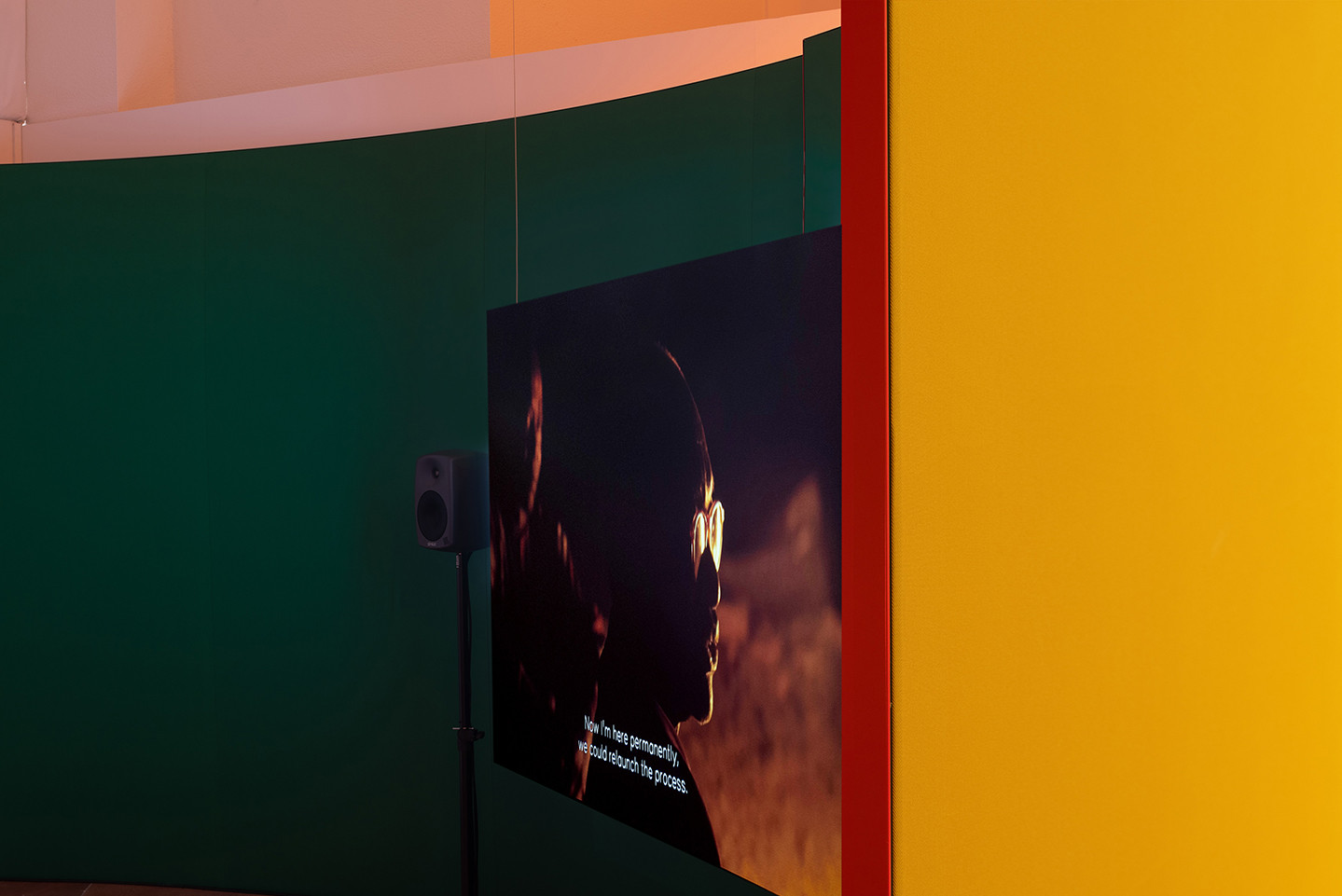
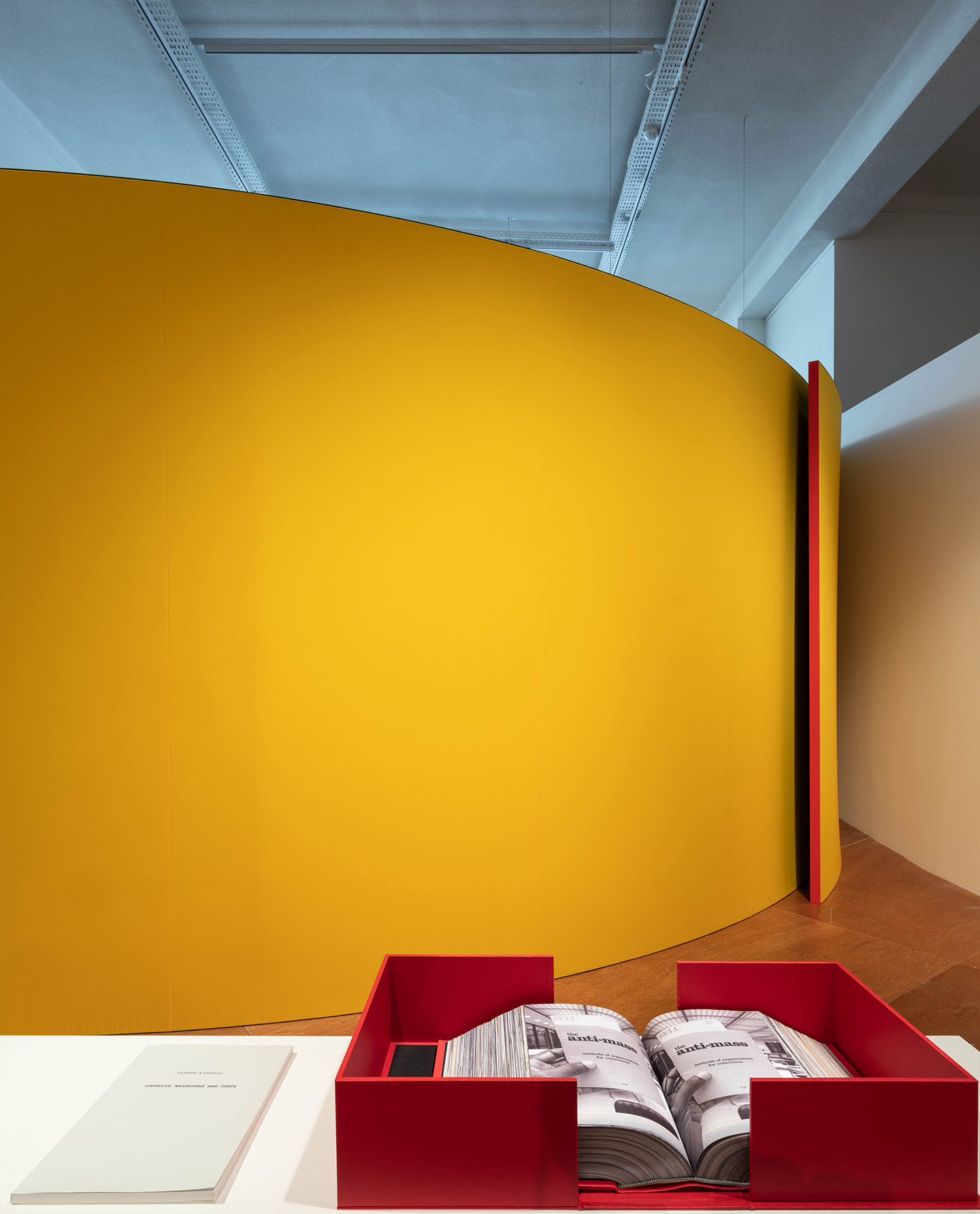
Vincent Meessen, The sun will always rise, 2020. Exhibition views
Circular modular display (designed in collab. with Emilie Lecouturier), steel and fabrics.
Mu.ZEE, Oostende. Photo 1 -3 : Steven Decroos
futurE exhibitions
Avant-garde and liberation - contemporary art and decolonial modernism
MUMOK, Vienna
June 7-September 24, 2024
past exhibitions
History Without A Past. Vincent Meessen & Samson Kambalu
Mu.ZEE, Ostende, Belgium
February 01, 2020 – Augustus 30, 2020
Though it's dark, still i sing
34th Bienal de Sao Paulo
September 2021 -January 2022
BEHOLD, WE ARE HERE
Lundskonsthall, Sweden
September 9, 2022 - January 29, 2023
BOOK
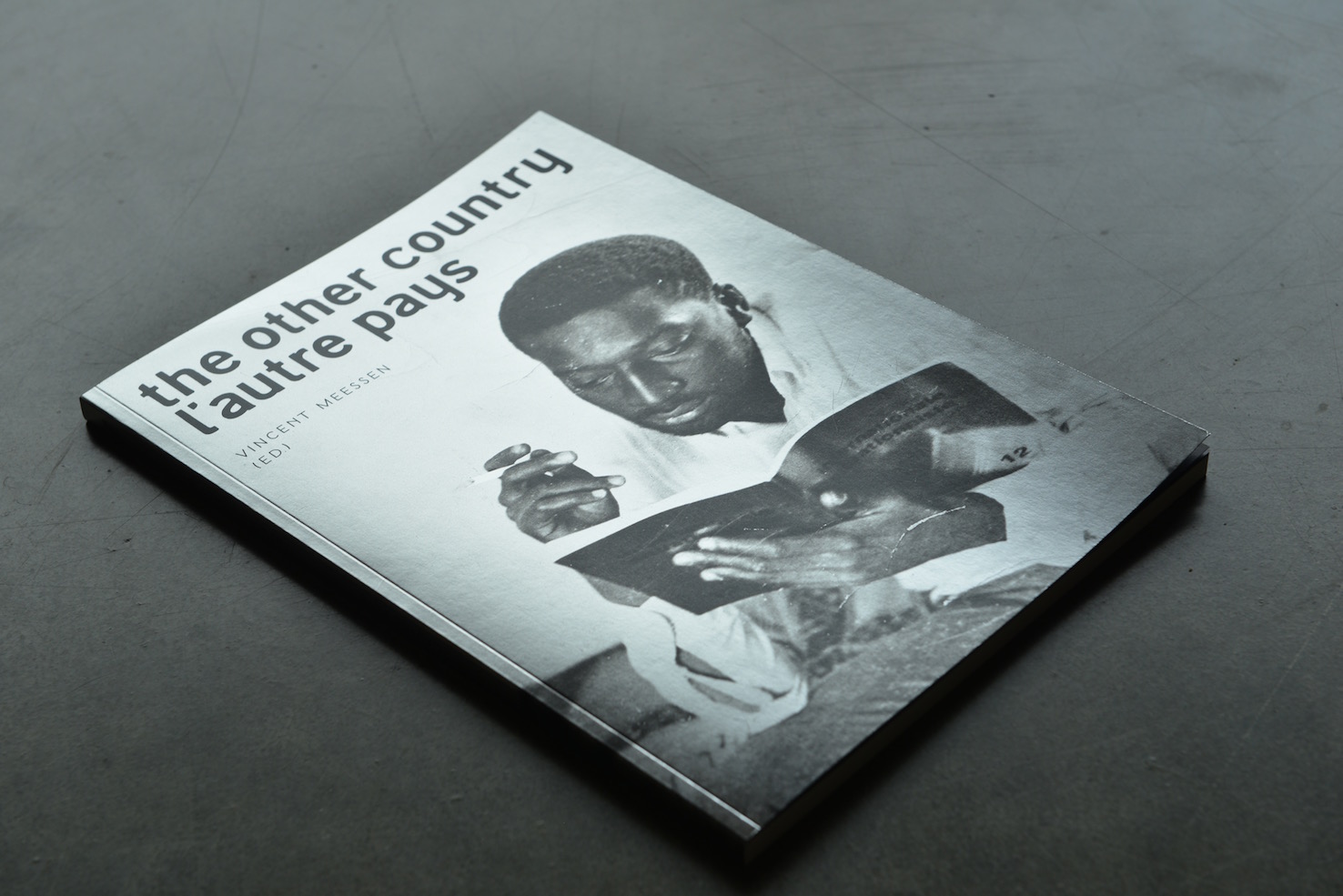 The Other Country / L'Autre Pays, Sternberg Press, 2018.
The Other Country / L'Autre Pays, Sternberg Press, 2018.
English/French
21×29.7 cm, 128 pages, b/w and color ill., softcover
ISBN 978-3-95679-402-5
COPUBLISHERS
WIELS, Brussels ; coproduced by MNAM Centre Pompidou, Paris;
with support of a/r and JUBILEE-platform for artistic research and production.
AWARDS
JURORS' AWARD - PRIX DU JURY
59TH ANN ARBOR FILM FESTIVAL, USA
PRIX Groupement National des Cinémas de Recherche (GNCR)
FID Marseille
"Il se trouve que c’est le premier film que nous avons découvert et il ne nous a plus quittés.
Il nous a profondément impressionnés, peut-être avant tout parce qu’il nous a profondément déplacés. Un déplacement à la fois historique, politique et cinématographique.
Le film opère un mouvement perpétuel, du vrai au faux, du passé au présent, de Nanterre à Dakar, de Godard à Omar Blondin Diop.
Un brillant entrelacs de récits, de genres et de matières, porté par un montage habile et vertigineux qui, en ouvrant mille fenêtres, bouleverse intimement nos représentations. C’est un grand geste de cinéma."
Bénédicte Hazé, Ariane Mestre et Romain Grosjean
PRIX SPécial POLITIQUE de LA LIGUE DES DROITS DE l'HOMME
Festival du Film des Droits Humains de Guadeloupe Monde En Vues
PRIX DU FILM SUR L'ART (ex-aequo)
BRUSSELS ART FILM FESTIVAL (BAFF)
"Nous avons trouvé la sélection 2021 très intéressante, avec des écritures cinématographiques très variées. Nous avons longuement discuté et finalement, nous avons choisi de remettre deux prix ex aequo. Ce sont deux films très différents, on pourrait même dire qu’ils ont deux manières opposées de procéder et de se fabriquer. L’un s’attache à nous faire partager une expérience personnelle et intime, l’autre questionne une problématique historique et contemporaine, celle des relations complexes entre l'Europe, l'Asie et l’Afrique, en faisant dialoguer passé et présent. Mais tous deux construisent, de façon remarquable et originale, leur sujet dans et par le mouvement du film."
Sammy Baloji, Mariana Otero, Alyssa Saro
BEST BELGIAN DOCumentary
18TH DOCVILLE INTERNATIONAL FILM FESTIVAL
LEUVEN
"A fascinating, nuanced and formally inventive account of the life of Senegalese Maoist activist Omar Blondin Diop. The jury was absolutely united in their belief that this incisive documentary was the standout film of this year’s National Competition and warrants the highest commendation possible."
Robin Broos, Rohan Crickmar, Ellen Vermeulen
REVIEWs
English
The Film Stage, October 2021
Meessen’s Just a Movement expands Jean-Luc Godard's 1967 classic La Chinoise. Much like its revolutionary protagonist, has no time to waste on trivial moments. Somehow it zooms through Diop’s 27 years and related Senagelese politics over the last half-century. It’s arts- and politics-focused, exploring the life of a young man who never got to see the world he was hoping to create—one that still doesn’t exist." (Michael Frank)
Arsenale, June 2021
"What makes Meessen’s film so politically unique is how it traces the gradual superseding of Françafrique by Chinafrica." (ESSAY by Jochen Becker)
Arsenale, June 2021
"In 2021, as in 1967 or 1973, it remains necessary to clarify how certain struggles can be inscribed into the current geopolitical constellations." (ESSAY by Bert Rebhandl)
The Reviews Hub
"A radical and inventive film essay" (Rich Jevons)
Cineuropa, March, 2021
"I try to shift documentary ethics away from reporting truth to reporting otherness." (V.Meessen in interview)
Mousse Magazine, March, 2020
"The past is not fixed and inert, it is alive and moving. It is in motion" (V.Meessen in dialogue)
An extended dialogue between Karima Boudou, Samson Kambalu and Vincent Meessen
ICS (International Cinephile Society)
"History and cinema intersect as a continuous flow, full of spiraling overlays" (Maria Jose Benites)
LINKS TO ORIGINAL REVIEWS IN French
RTBF, October, 2021
"As the film progresses, the ideas defended by the film emerge, giving us a glimpse of a stimulating reflection on art, life, politics
and everything that unites them. (...) a radical work faithful to its subject, which manages to go beyond what a more traditional documentary
would have made of such a character" (Adrien Corbeel)
Cinergie, October 2021
"Resolutely contemporary and revolutionary.
Vincent Meessen imposes himself here as a dissident filmmaker, who shows that cinema has a historiographic dimension of its own and can reshape reality."
(Adèle Cohen)
La Libre Belgique, October 2021
"Fascinating"
(Adèle Cohen)
Débordements, June, 2021
"A dazzling remake" (Occitanie Ladurie et Barnabé Sauvage)
Franceinfo TV, June 2021
"Omar is a documentary character imprisoned in a fiction. How then to free him from this straitjacket? I felt all the more authorized to do so because Godard had said, in the 1970s, that the only character with any balance in La Chinoise was Omar. This served as a guarantee for me to make him the lead in a new film". (Interview by Falila Gbadamassi)
Africultures, March, 2021
"When investigation becomes form" (Olivier Barlet)
Mediapart, March, 2021
"The magnitude of the cinematographic gesture stuns and soothes." (Ludovic Lamant)
Cineuropa, March, 2021
"I try to shift documentary ethics away from reporting truth to reporting otherness." (V.Meessen - interview)
Persona Grata, March, 2021
"Playing with all the resources of cinema, Meessen signs a creative documentary of remarkable sophistication, assuming his committed point of view." (Jean-Philippe Guerand)
Le Soir, March, 2021
"Remarkably filmed and directed, Just a Movement is a multiple and sensory cinematic object". (Gaëlle Moury)
Télérama, Augustus 2020
"Striking and powerful"
(Cécile Marchand Ménard)
GERMAN
that is one of the highlights of postcolonial cinema." (Bert Rebhandl)
Italian
Portuguese
Publico, March, 2021
"It is one of the most remarkable documentaries of the last few months, an extraordinary object
that leads the best of the six programs that Doclisboa has put together for this troubled edition"
SPANISH
Páginas del diario de Satán, March, 2021
"Juste un Mouvement, by the Belgian Vincent Meessen, is the best film I saw in the Berlinale Forum section." (Ricardo Bedoya)
Cineuropa, March, 2021
"I try to shift documentary ethics away from reporting truth to reporting otherness." (interview V Meessen)
Contact
Screenings / Film festivals
CBA-Centre bruxellois de l'Audiovisuel
promo@cbadoc.be
www.cbadoc.be
Installation / Exhibitions
Jubilee-platform for artistic research and production
distribution@jubilee-art.org
www.jubilee-art.org
PRESS BELGIUM
Rodrigue Laurent
+32 496 69 59 12
rodriguelaurent@aol.com
PRESS france & abroad
Makna Presse
Chloé Lorenzi
+ 33 1 42 77 00 16
+ 33 6 08 16 60 26
chloe@maknapr.com
interview
Vincent Meessen and Olivier Marboeuf in conversation
(CLICK HERE TO ACCESS FULL DIALOGUE)
(Extract)
OM: Just a Movement's point of departure is the tragic destiny of the young Marxist intellectual and activist Omar Blondin Diop. In one of your previous films, One. Two. Three., you already explored the connections between young students and the Situationist International, a Western revolutionary avant-garde that set out to occupy the cultural domain through its critique of the spectacle. How did you come across Omar?
VM: This film is indeed a direct prolongation of one of my previous films shot in Kinshasa, as it was while doing research for that film that I came across the photograph of Omar Blondin Diop reading the final edition of the Situationist International journal. It happens that I'm particularly interested in the dissemination of situationist theses in Africa, an important subject for this revolutionary international avant-garde but one which is absent in the field of academic research. This film is a new contribution to this incomplete historiography, only not in written form, and its issues go beyond just the historical. In 2015, an associate identified the said photo of Omar as the source of a portrait painted by Issa Samba, member of Laboratoire Agit'Art, a Dakar-based collective set up in 1974 and, to my mind, one of the most stimulating artistic adventures of African modernity. A photo thus led to a painting and indicated a direct link between artistic and political practice. Yet, I already knew that while studying philosophy and preparing his agrégation exam, all the while being involved in student protests at Nanterre, Omar had played his own role in La Chinoise in 1967, a pivotal film in Jean-Luc Godard's filmography. And lastly, Omar had also frequented the cinematic avant-garde in London and published an essay on a Warhol film. The combination of all these elements really set off my curiosity. But it was the efforts undertaken by Omar's family in Dakar to reopen the enquiry fifty years after his death in detention during Léopold Sédar Senghor's presidency that convinced me that this story contained something topical and had memorial relevance nationally, and no doubt beyond. The aim, then, was to articulate the relation to not yet remembered pasts and to investigate their possible contribution to not yet imagined futures.
OM: Even though Omar's suicide is called into question and uncertainties surround the circumstances of his death, Just a Movement isn't really an enquiry in the criminal sense of the term, but rather a kind of political and poetic enquiry into the traces and the heart of Omar's legacies. These legacies are in many respects speculative in your film, where you choose to focus on Senegal and its current struggles, and to propose a possible actualisation of a phantom's desires.
VM: It isn't an enquiry into his death, but rather a film about his survival. My project was twofold from the start: firstly, to paint a portrait of Omar by listening to the relations lived, and thus to allow the Senegalese to be able to debate this figure, his legacy, and the meaning of his engagements anew. But being neither a historian nor a documentary filmmaker, it was important for me to reinforce this portrait-in-his-absence – and that can thus be qualified as spectral – with a cinematographic experimentation capable of connecting the projections and desires of yesterday with those formulated today. To be able, at the same time, to portray Chinese-Senegalese relations from Omar's Maoist phase to the stakes of the current state's bargaining with China, to sound out the young generation of militants' relationship to the figure of political martyr, or again to try to elucidate the way in which Omar embodies a blind spot in Godard's cinema. To propose a possible actualization of the phantom's desires, as you suggest, is indeed to take seriously the survival of the dead, who continue to haunt a scene, whether artistic or political. It happens that Omar haunts both of these scenes. He upset both Senegalese politics under Senghor, which the current authorities are the inheritors of, Godard's cinema, or again Issa Samb's performances.
OM: Your film makes cinema itself one of its subjects by proposing a dialogue, and perhaps even a dance, with Jean-Luc Godard's fiction film La Chinoise, annunciatory of May 68, one in which you, for your part, look for the traces of a documentary terrain.
VM: In cinema, it is customary to distinguish between fiction and documentary, which continue to be presented as genres. Yet it seems to me that this fiction film presents many concordances with real events that took place a few years later and which involved one of the actors in this fiction. So I very closely examined this film, rightly considered as a major film in the history of cinema. I approached it as a document of an experiment in that it today above all speaks of its era and its social tensions. And secondly, it speaks about Omar too, a peripheral and a priori the least important character in the cast, whom I turned into a leading role. Starting with this character as a nodal point, I devised a kind of interlacing that links this old film to mine. That ultimately creates a play, a spiral that allows a circulation in an ascending and descending movement, into the past and towards the future. It is thereby possible to return to the past to grasp the impetus of the earlier film and to harness its potential energy again, that stored by a body, which can then be transformed into kinetic energy when this body is set in motion.
OM: With Godard, we see the kind of naïve error that consists in believing that a rather puerile reversal – it's now the Black person teaching – can suffice to dismantle the mechanisms of colonial authority, and to dissimulate who has the power to constitute a scene of representation and authority. How do you position yourself as regards this question in your film?
VM: Omar has a special status in the original film. He and the philosopher Francis Jeanson, an intellectual and former head of an Algerian FLN support network, play their own roles under their own names, unlike the other characters. But there where Jeanson is given all the latitude to develop his own line of argument in a very long sequence, Omar, while in a clear position of authority as he teaches the others, in reality amalgamates a string of quotations from Lenin and Mao. But Omar isn't just the Black character. Of all the actors, he is also the only activist involved in the student movements of the time. It must be remembered that he wasn't even credited, but that Godard recognized ten years later that he was the only balanced character and the one who, ultimately, still mattered to him. An African, Black, young philosopher and militant, then. This real-life character is subjugated and captured in a fiction. As the poet Paul Nougé once said, in the kingdom of the image, ghosts are king. It's not a unique case in Godard, whose equivocal relationship to cultural alterity, and specifically concerning the presence of small African roles in his filmography, is critically deconstructed in my film, then, using the master's tools. Literally between Mao and Marx, Omar, in Godard's film, becomes an academic Maomarx. I try to extricate him and to give him back a far more complex and turbulent life by giving voice to those who knew him.
OM: Khouma, your assistant on the shoot, plays his own role in the film, that of a this time Senegalese filmmaker. Can you say some more about this figure, who remains quite discreet but with whom you try to weave a dialogue in images?
VM: Khouma is a history graduate who has chosen to make films and with whom I share an interest in this period. The images that I invited him to shoot while we were making the film respond to the Super 8 images of my family, who lived in Dakar from 1965 to 1968. I wanted there to be this coiling movement and that his character reference other films, like, for example, his film on Kédougou prison where Senghor's opponents were imprisoned, or the one that is currently being made about the circumstances of Omar's death, or all those yet to be made and which will challenge the representations inherited from Senghorian discourse, as history can only be critiqued from the outside, by observing how it is constructed. This gesture concerning Omar, in the sense of a storyline narrating his feats, is thus counterbalanced by a gesture that engages the film itself as a narrative construction at a confluence of spaces, times and cultures.
OM: Omar is one of the few characters who plays his own role in Godard's La Chinoise and it is an idea you appear to try to generalize for most of the characters in Just a Movement as a mise-en-abyme of the documentary form. I have the intuition that this is notably a way for you to confront the difficulty of a situated viewpoint. Who is speaking, and in whose name? But more important still, I think: in which space is one speaking? To put it more precisely, asking everyone to play their own role could be a way of making believe there was no directing, no director.
VM: The situated point of view can no longer be just that of the filmmaker, who in that case would function still like an old-school auteur. Even if this auteur exposes themself and redistributes some of their power to their collaborators, it's in the editing room that they evaluate what they learned and understood from their experience. A shoot situation is never fixed or given; it is in movement and is built through vicissitudes and relationships. Most of the interviews were shot in Omar's family home. The choice to shoot the film almost solely in Dakar allowed an exclusively local intersubjectivity to emerge. Each witness speaks from their perspective. But the problem with the documentary genre is that it presupposes a discursive rationality and instrumentalizes it in its own narrativity, as if to provide proof of authenticity. Yet my aim was not to construct a space that ensured that a truth prevail, but to assemble an ensemble of facts and observations in all their uncertainty, in essay form. The actors, for their part, perform their daily occupations: trading, kung fu, activism, poetry, cinema, Chinese medicine, theoretical reflection. These actors traverse representative spaces: the family home, Gorée prison, the Museum of Black Civilizations, the Confucius Institute, the ramshackle Laboratoire Agit’Art courtyard, an amphitheatre in the Thiaroye military camp. They put documents back in circulation, recite texts, attempt gestures that serve to form the storyline, to give it poetic depth. The space that I try to enable the emergence of is worked in two directions, by retrospection and projection. This space is thus a time in flow: the imperfect present. In the absence of a judicial truth about Omar's death, what remains for us is to fashion a mnemonic truth. Alongside the witnesses and actors, I thus consider myself to be more a mnemonics fitter and turner than a director.














